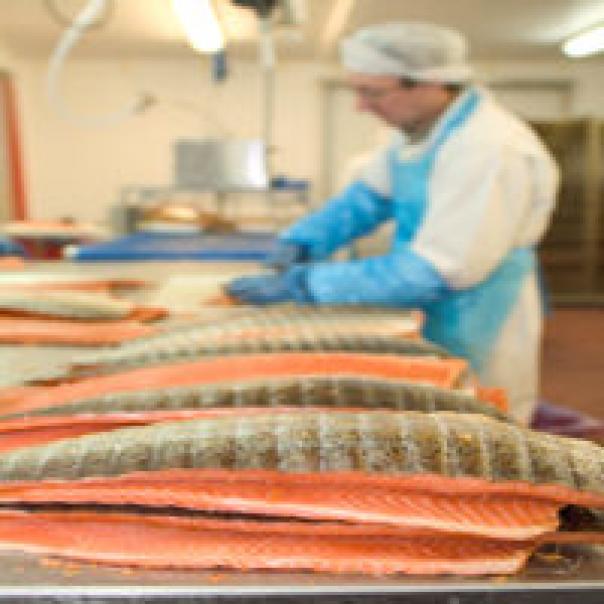
With some categories more than a quarter more expensive than last year – including oils and fats and fish, which are currently trading at +25% higher than September 2017 – the figures show that there is ‘yet more turbulence’ in key categories.
Fiona Speakman, CGA client director for fore, explained: “Steep inflation in the oils and fats and fish categories in the latest edition of the Foodservice Price Index is another sign of the volatility experienced by the sector ever since the UK’s Referendum on leaving the EU.
“There are many other inflationary pressures beyond Brexit of course, but we see no sign of the turbulence easing as the date for leaving the EU draws nearer, and an anxious few months lie ahead as buyers await clarity on the terms of departure.”
While quota regimes continue to drive the price of cod and haddock in particular, salmon is ‘creeping slowly down’ since summer. Consumers can rest assured that the ‘fish index typically drifts down’ during the winter months but further declines in the value of the pound may continue to affect imports.
Oil and fats is now at ‘unprecedented levels’ haven risen every month since February, CGA and Prestige said, driven by the ‘huge surge’ in the price of butter over the past two years.
While the weather has wreaked havoc on prices of late, it is expected that this will “ease as we enter the winter period and the upstream wholesale price reduces”.
Prestige Purchasing chief executive Shaun Allen, concluded: “We have seen a much higher level of volatility within some food supply markets this year, which once again is impacting margins for operators, who are already under pressure in this area.
“An EU withdrawal agreement that gives more certainty around future trade arrangements will do much to calm markets as we head towards 2019. In the meantime, it’s essential that operators take a proactive approach to management of future risks of inflation.”